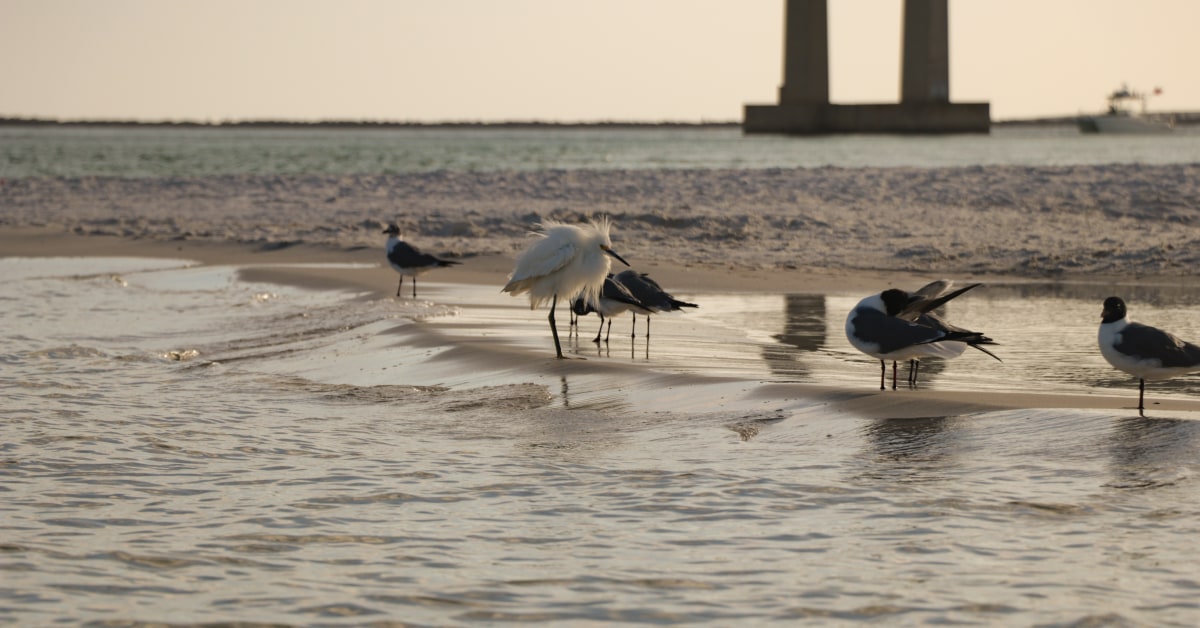There are many threats and dangers for nesting birds along the Alabama Gulf Coast beaches, dunes and barrier islands. Beach-nesting birds like the Wilson’s plover, least tern, snowy plover and black skimmer all encounter hurdles, including storms and other natural disasters, as well as loss of habitat due to coastal development, off-road vehicles and people. Although each of those has contributed to their decreasing population, there are measures we can take to help these birds thrive once again.
American Bird Conservancy’s (ABC) educational campaign “Fish, Swim, and Play from 50 Yards Away” has proven to be a successful approach. This educational campaign raises awareness among beachgoers of the recreational impacts on beach-nesting birds. To help stop this decline, be mindful of your impact on these coastal birds and their young.
“People visiting the beaches are often unaware of the many species of birds that nest in the sands near where they are swimming, fishing and playing. As a result, nests can accidentally get trampled, destroyed or abandoned because people get too close,” said Kacy Ray, Gulf conservation program manager for ABC’s Gulf Beach-Nesting Bird Conservation Program.
“The best thing for beachgoers to do is to avoid getting close to areas where larger congregations of birds are gathered, and to always respect areas that are roped off or marked with signs designating an area that is used by nesting birds,” said Ray. “The habitat for these birds is diminishing every year due to beach development, erosion and ever-increasing recreational use, so the birds can really use any break we can give them. They have no other place to go.”
Ray pointed out that it can be difficult for both the year-round resident and the casual vacationer to see the difference between a bird that is simply sitting on the sand and one that is tending eggs or a nest or young.
You know you’ve entered a nesting area when large groups or individual birds vocalize loudly, dive-bomb your head, or feign injury to lead you away from their nests. If this happens, back away and share the beach so the birds can successfully rear their young.
ABC is leading a Gulf Coast conservation effort that is working to identify and implement protective measures for these vulnerable beach-nesting birds. The project utilizes expertise not only from ABC but from partners throughout the Gulf region, including Gulf State Park, among many others.
Funded primarily by the National Fish and Wildlife Foundation, the project focuses on protecting and monitoring beach-nesting bird habitat in Texas, Louisiana, Alabama and Florida.
Source: American Bird Conservancy Press Release



Leave A Comment